Culture
Meet 3 Leaders of Our LGBTQIA+ Business Resource Network Who Promote a Culture of Belonging—and Thriving—at 2U
Written by 2Q on Jun 8, 2022
Related content: Diversity And Inclusion, Leadership, Life at 2U
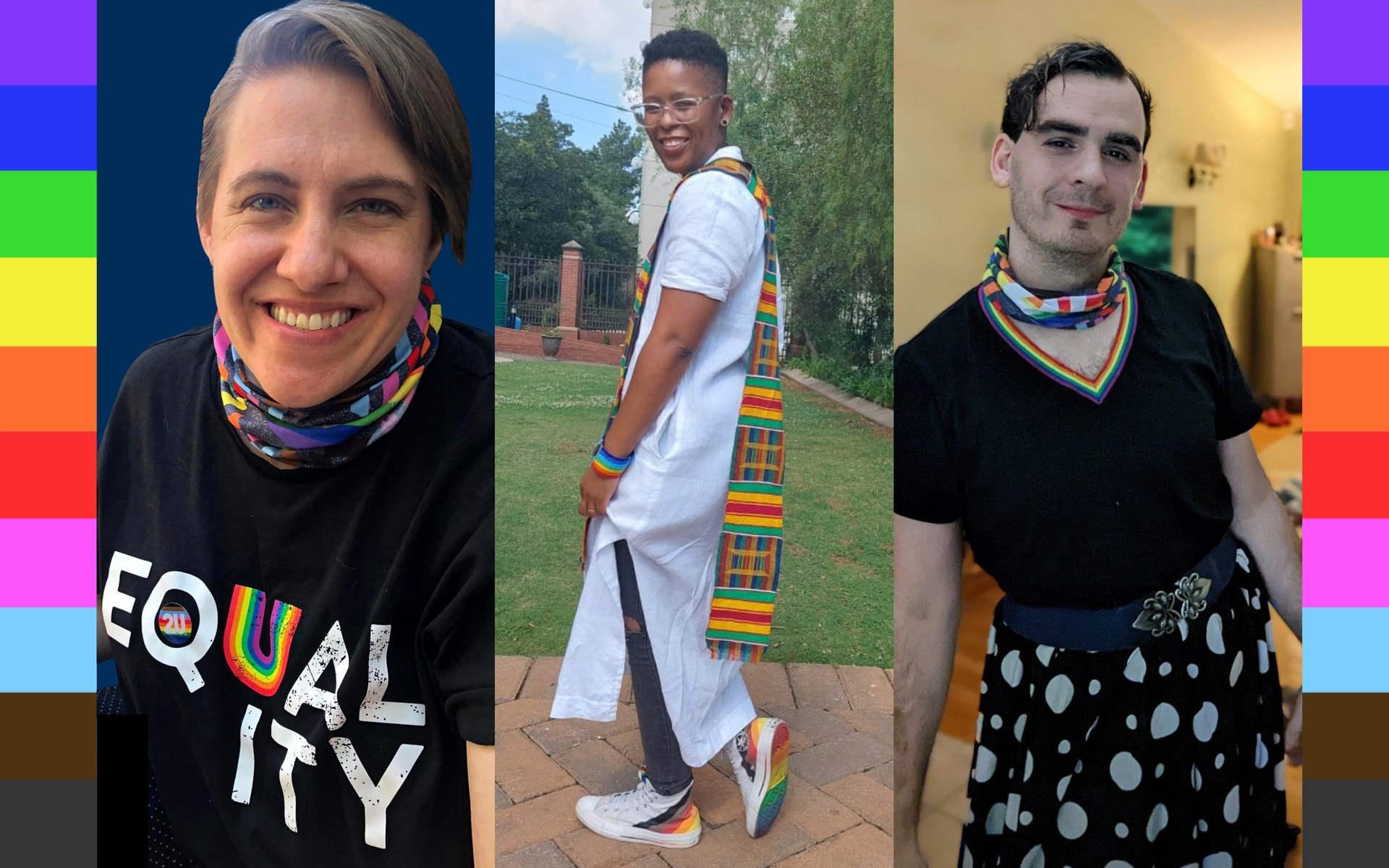
What’s the secret to good leadership, you ask? In today’s world of increasingly diverse perspectives and experiences, part of the answer is knowing how to strike that delicate balance between speaking and listening, educating and engaging, advocating and celebrating.
For the leaders of 2Q, 2U’s LGBTQIA+ employee-led Business Resource Network (BRN), embracing diversity in all its glorious forms helps them be better leaders on their respective teams at 2U, and vice-versa. They don’t just reflect the spectrum of sexual orientation, gender identity, and gender expression across the company’s global offices—from lesbian, gay, bisexual, and transgender to nonbinary, gender-fluid, and the often-used umbrella term, “queer.” They also actively promote a culture of belonging by planning and hosting events, representing 2Q members’ voices with the C-suite, collaborating with other BRNs, and modeling how the LGBTQIA+ community can “Go Forth and PRIDE” in our daily lives.
For U.S. Pride Month, we connected with three 2Q leaders whose passion and pride are palpable forces in 2U’s mission to eliminate the back row in education: Global Chair Jess Samuels (she/her) who works remotely outside of Philadelphia as the product evangelist for 2U’s boot camp product team; Global Ambassador Mantedieng “Mantis” Mamabolo-Cunningham (they/them) who works out of 2U’s Cape Town, South Africa, office as an intermediate business analyst; and Global Advocacy Chair Collyn Messier (they/them) who works out of 2U’s Maryland headquarters as a business analyst II.
Read on for what compelled each of them to join the company, how their 2Q roles inform their daily work, and how they’re helping to lead the charge on diversity, equity, and inclusion (DEI) at 2U.
Hey everyone, happy Pride Month—a time for rainbows and glitter but also lots of education! Let’s kickoff the chat by explaining how your education and professional experience played a role in your decision to join 2U?
Jess: I worked in residence life for 18 years prior to joining the 2U boot camps. My first role was in Student Success, which seemed like a natural fit given my background. But it was the edtech part of the job that really got me excited. I’ve always had a passion for learning technology and helping others feel comfortable with new, efficient ways of doing their work. In my current role, I get to fully utilize the Master of Communication Management I earned from Simmons University.
Mantis: Unemployment is rife in South Africa—oftentimes, one doesn’t have the luxury of finding a company that aligns with one’s goals and values. This misalignment had been my own experience, so I decided to find a position where I could add something meaningful to society. I came across 2U—a company that shares my love of education and understands the urgency to make learning available to as many people as possible. I knew 2U would challenge me creatively and intellectually to be my best at work.
Collyn: My journey to 2U was pretty indirect. I joined part-time as a technical support rep after leaving my first career in science and thought it would be a stop-gap as I explored other options. Instead of moving on, I applied to the Tech-Dev team feeling my experiences with labs and research were relevant to project management and agile methodologies. I was fortunate to have managers who saw that my skills translated. Since then, I’ve applied what I learned about the scientific method and data analysis to developing strategies that help move the team forward.
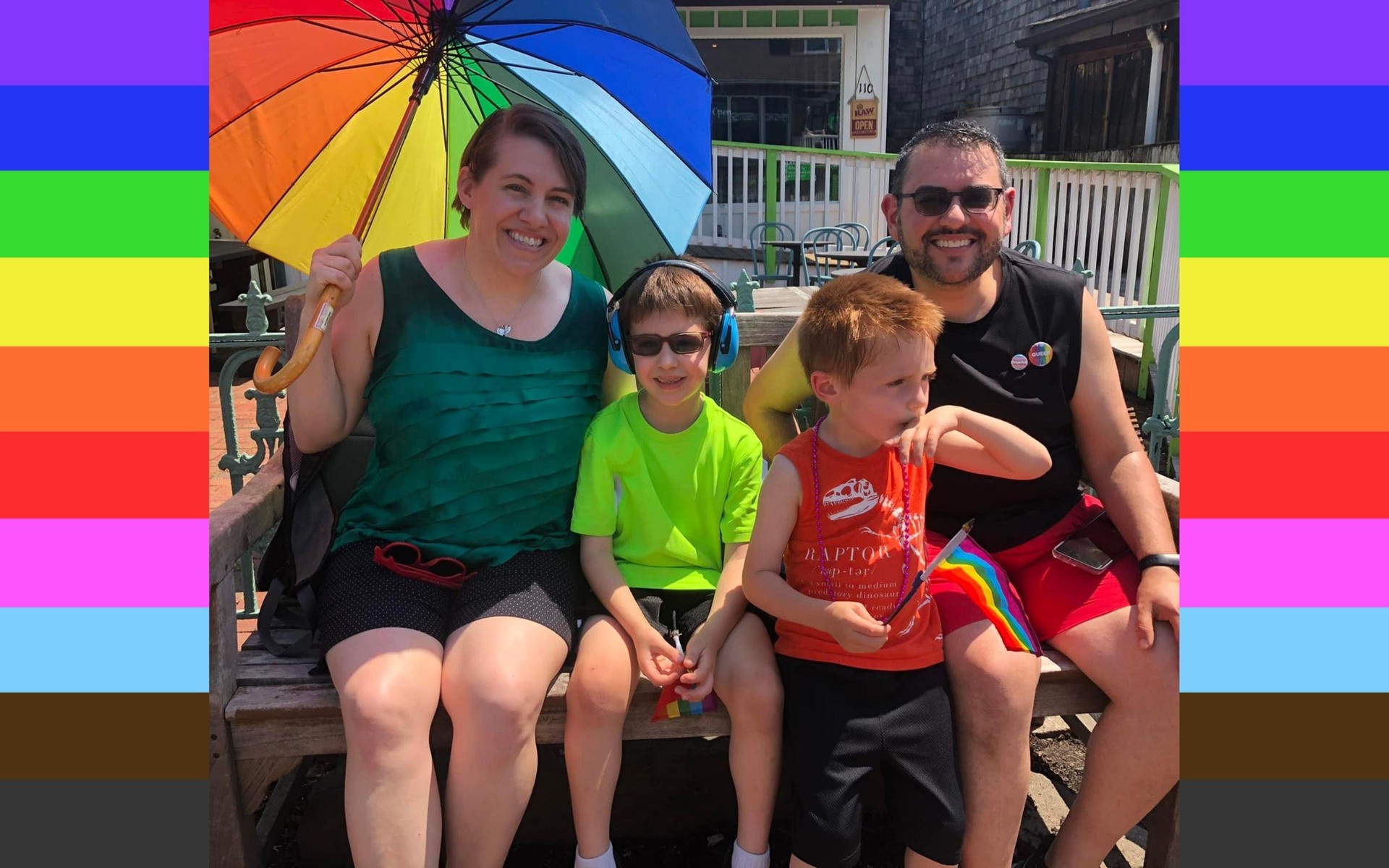
2U is always eager to hire people from diverse backgrounds, so your “luck” with your team tracks, Collyn! So how would each of you describe your day-to-day role and the leadership traits you embody to support 2U’s mission?
Jess: I’m lucky to be at the nexus of information. People come to me to find out what’s happening with boot camps. It’s my role to make sense of all this information and get it to the right people at the right time. Each week, I might be preparing a presentation (or three), working on FAQs, or describing the latest product upgrades in meetings. Since my role is unique within the boot camps, I try to be a good role model for showing teams how to proactively loop each other in and keep lines of communication open.
Mantis: Our team manages a product catalogue that creates a variety of efficiencies for the Placement team and Online Technical Support. I work with our business partners, Engineering team, and technologies to solve operational conundrums and relieve pain points that may exist. In terms of leadership, I oversee elements of stakeholder and project management and lead analysis components of our work to make sure we deliver quality and value-focused solutions.
Collyn: My main role is to ensure products stay on track and head-off any issues. So, I do a little people-managing, code review, and quality assurance, and I talk with our internal stakeholders about features they want—which requires me to speak with confidence about our products and listen to what people say about them. I have to judge when and where to apply pressure on our engineers or when to push back on an untenable stakeholder ask. All in all, I try to lead by staying calm and embracing the daily challenges of liaising between multiple teams that have different priorities, technical knowledge, and unique personalities.
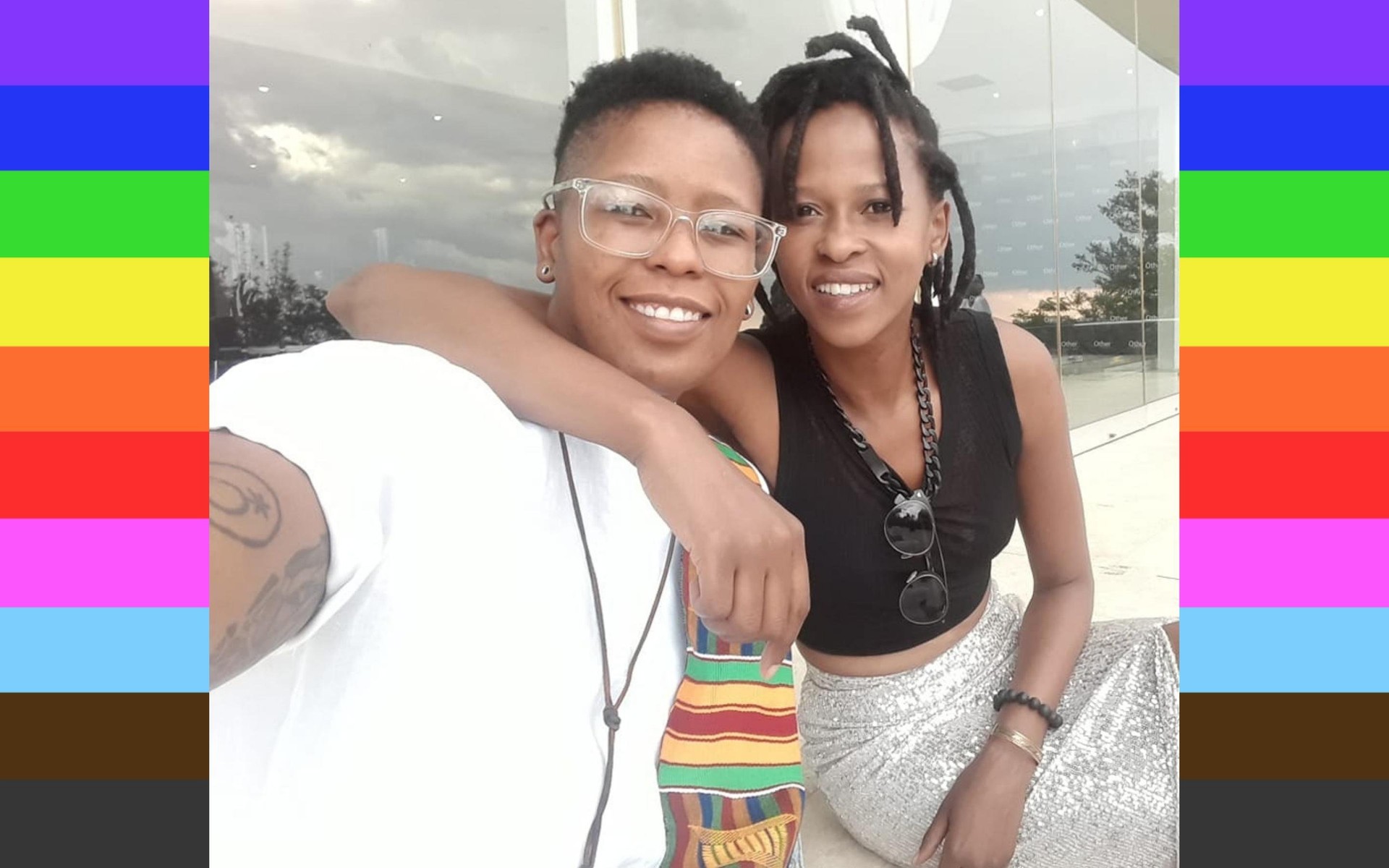
Speaking of unique personalities, what would each of you say are the greatest joys and challenges you’ve found as a member of the LGBTQIA+ community? And how might those connect to the issues you’re passionate about today?
Jess: I love that the LGBTQIA+ community is such a welcoming place for people to just be themselves—no matter what flag they wave or who they love. It’s that feeling, along with a strong sense of wanting to make sure everyone belongs, that truly makes it feel like family. Because my trans husband and I often get read as a straight cisgender couple, with our recent move, we’re constantly “coming out” and actively searching for community whereever we go. I’m sure in a few years we’ll have built up a little haven of queer families, so that when others move to this Philly suburb, they’ll easily find their own place and friends here.
Mantis: My joys are deeply rooted in the concept of authenticity and showing up as 100% myself every day—and no longer being apologetic about it. My challenges lie there too, as I still get triggered by folks who misgender me because they’re ignorant to the language, even if there’s no malicious intent. It’s difficult to point to the non-white and non-male, transgender or nonbinary executive who’s like me because I’ve never even heard of one. It’s also taxing to be “the only,” “the first,” “the one of very few”—which makes showing up at times quite laborious and othering.
Collyn: I’ve always seen my gender fluidity as a superpower; It gives me a social chameleon ability to walk between gender roles and present more “fem or masq” as the situation dictates. Probably my greatest joy professionally was when my new manager at 2U told me that, before I started, she met with the team to practice using “they” in conjunction with my name. I was elated; I’ve never felt more seen than in that moment, and I was relieved the burden of educating about pronouns wasn’t falling on me. As a cis-ally, adding your pronouns to spaces like your LinkedIn and Zoom profiles is easy to do and has a massive impact on the trans and nonbinary people around you. It’s likely to make a queer individual feel more comfortable being themselves—and if you’re a manager, it may even convince them to turn down another offer to work for you.
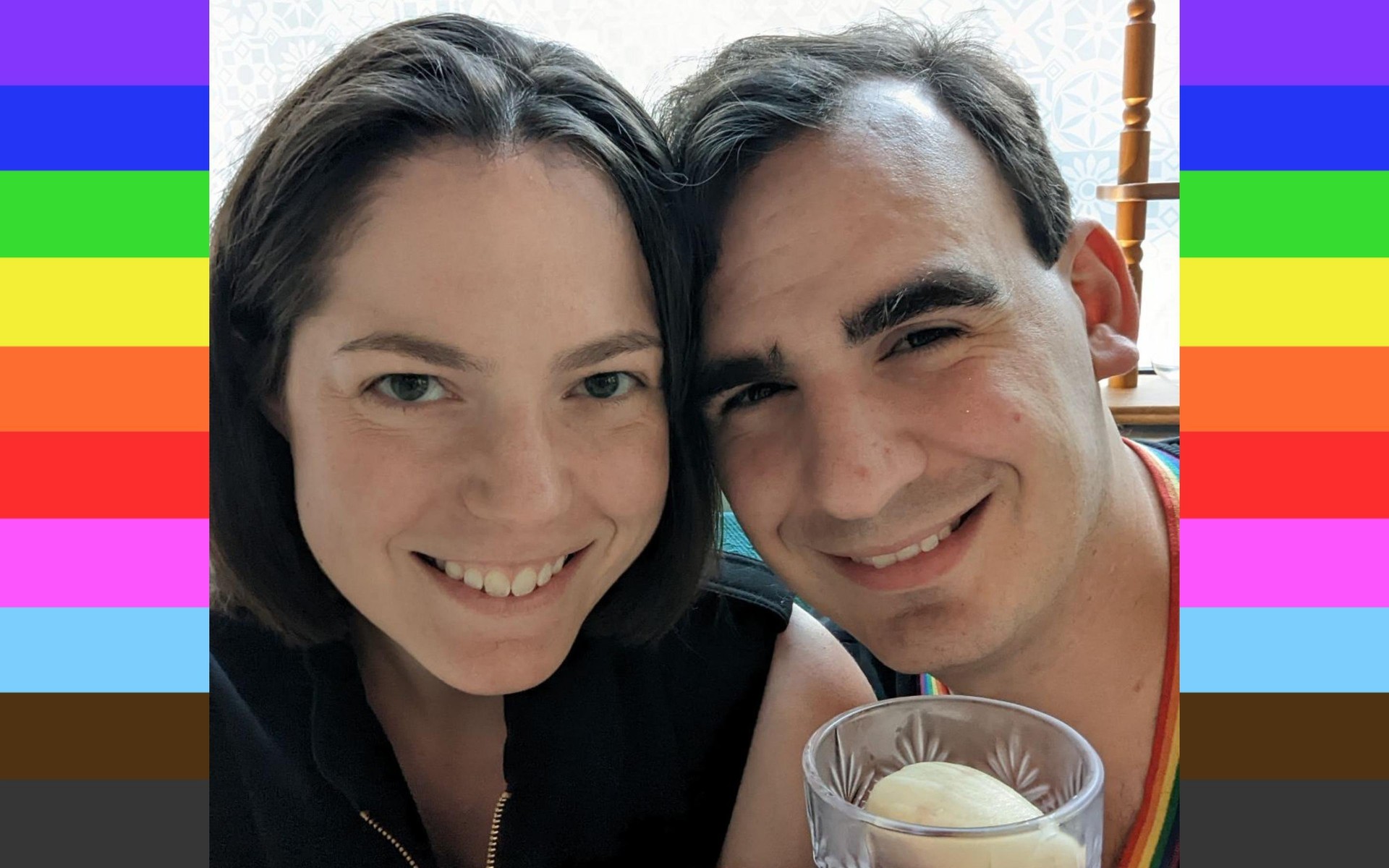
Sometimes the simplest actions can lead to powerful results! As a leader in 2Q, what do you see is needed in the working world for there to be more understanding, equity, inclusion, and support for all LGBTQIA+ professionals?
Jess: My husband and two kiddos (ages four and six) and I recently went to Philly Pride, and as we walked around, I was so delighted by the level of diversity in race, identity, and expression. I loved our kids witnessing so many ways of presenting oneself—and not only talking about but also seeing, for example, that “yes, of course boys can wear dresses.” I want to live in a world where people feel comfortable bringing their true selves to work too, without fear of disrespect from colleagues or being skipped over for promotions. For 2Q members, the more comfortable we are with being visible at work, the more our co-workers and supervisors will see our queerness as just one of the many unique assets we bring to a team.
Mantis: In the greater workforce, there’s a collective paradigm shift needed where respect for the next person is the bare minimum and we don’t rely on our assumptions to determine how to treat each other. One particular initiative I’m proud of is the creation of my global ambassador role in 2Q. It’s important for me to be a voice in the room when our BRN makes plans and decisions that impact folks spread across continents. The addition of my role speaks to a growing appreciation for intersectionality and truly acknowledging we work in a global company. In order to keep building solidarity and mutual respect, people need to understand that their colleagues don’t always experience a shared identity in the same way.
Collyn: Besides pronoun advocacy, I’ve been working with 2U’s overarching DEI team to establish listening sessions for 2Q members as well as processing spaces, where we can all come together when world news hits that LGBTQIA+ protections are under attack. Those safe, open forums are key to helping our community take intentional moments to address emotions and realities together, so that we can hopefully move forward through our work and continue to function at our best.
Absolutely. Feeling safe and supported is critical to bringing your best self wherever you go. So how does your 2Q chair position help inform your work at 2U? And through that role, what have you learned that allies can do to support LGBTQIA+ professionals in their professional relationships?
Jess: Before 2Q, I was fairly isolated in the boot camps. But since joining the board—first as communications chair and now global chair—I’m constantly talking to people across business lines. I can now turn in so many different directions for information or new ideas for my job. As far as how allies can support, that’s honestly pretty simple: Don’t assume the gender identity of someone’s partner. Ask for people’s pronouns. Add NameCoach and pronouns to your email signature. Google and educate yourself when you don’t know something.
Mantis: My 2Q role has expanded my view on how I can use my privilege to help those in the world who continue to be disenfranchised and keep finding ways to bring their issues to the forefront so their cries can be heard. I may be only one person in the grand scheme of things, but that doesn’t mean what I do is insignificant. 2Q has allowed me to grow in confidence—and that’s the best way I’ve been able to show up as an ally to others.
Collyn: Through 2Q, I’ve been introduced to so many individuals I otherwise never would’ve met. I’ve gained new skills and had opportunities to network across teams and verticals beyond my sometimes insular Tech-Dev bubble. And I’ve learned that one of the greatest acts of allyship is to just listen. Don’t presume you understand the experiences of a marginalized community because you might belong to another one. We’re all affected differently—even within the LGBTQIA+ community!—and that acknowledgement goes a long way in bridging gaps.
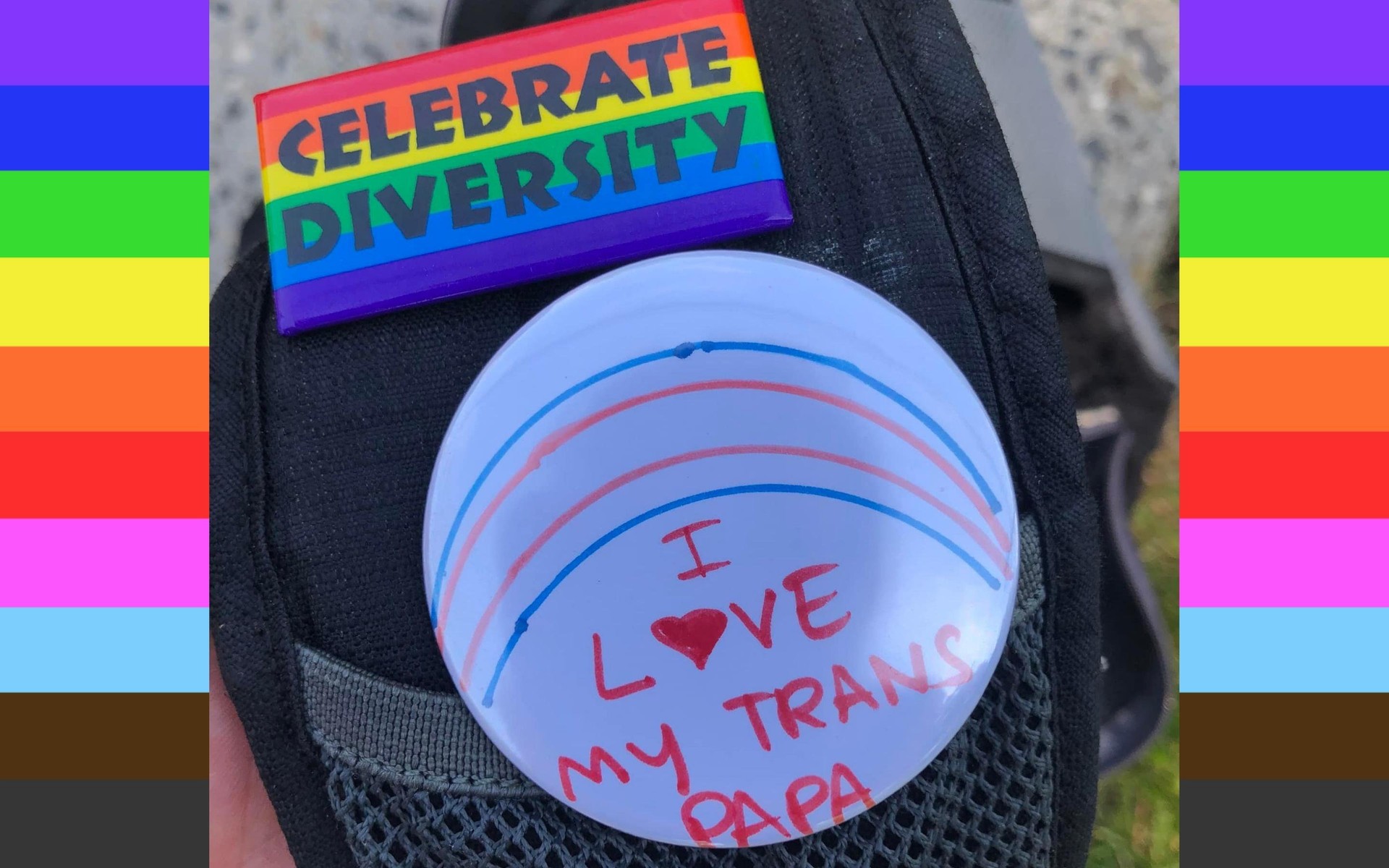
Right, neither the LGBTQIA+ community nor any marginalized group is a monolith. As we wind down here, why do you feel it’s important to see even more LGBTQIA+ professionals in leadership positions? And to that end, what advice do you have for other LGBTQIA+ folks interested in becoming a leader at 2U?
Jess: If you aren’t in the room where decisions are made, then you can’t speak up when it’s needed. Having LGBTQIA+ folks and allies as leaders means helping companies make smart choices and more inclusive decisions, and they can role-model to show others how to step into leadership, too.
Mantis: For those of us who carry our identities in our skin, in our love, in how we access facilities, and in the many ways we’re forced to be creative in fitting into the binary—it’s important for us to be seen and heard. Always show up as yourself, however that concept manifests itself, and put your hand up. Take up space so that the role you take on, no matter how “small,” adds to the collective paradigm shift. That’s what makes all the difference in our worlds.
Collyn: Representation matters! Seeing someone else you can relate to makes a big difference on setting your own expectations for how far you can go. Seeing LGBTQIA+ folks in leadership at any company tells us there’s someone who understands some of the issues affecting our community and will speak truth to power. There’s strong data that DEI representation in leadership increases folks’ happiness with their employer and improves retention rates. Moreover, queer representation in leadership would go a long way in addressing issues that LGBTQIA+ folks have in the workplace. For anyone wanting to become a community leader at 2U or anywhere, my best advice is to be bold, open, and listen to folks outside your bubble.
~~~
Eager to join 2U and apply your own leadership skills to supporting student success and promoting a culture of belonging? We're hiring.